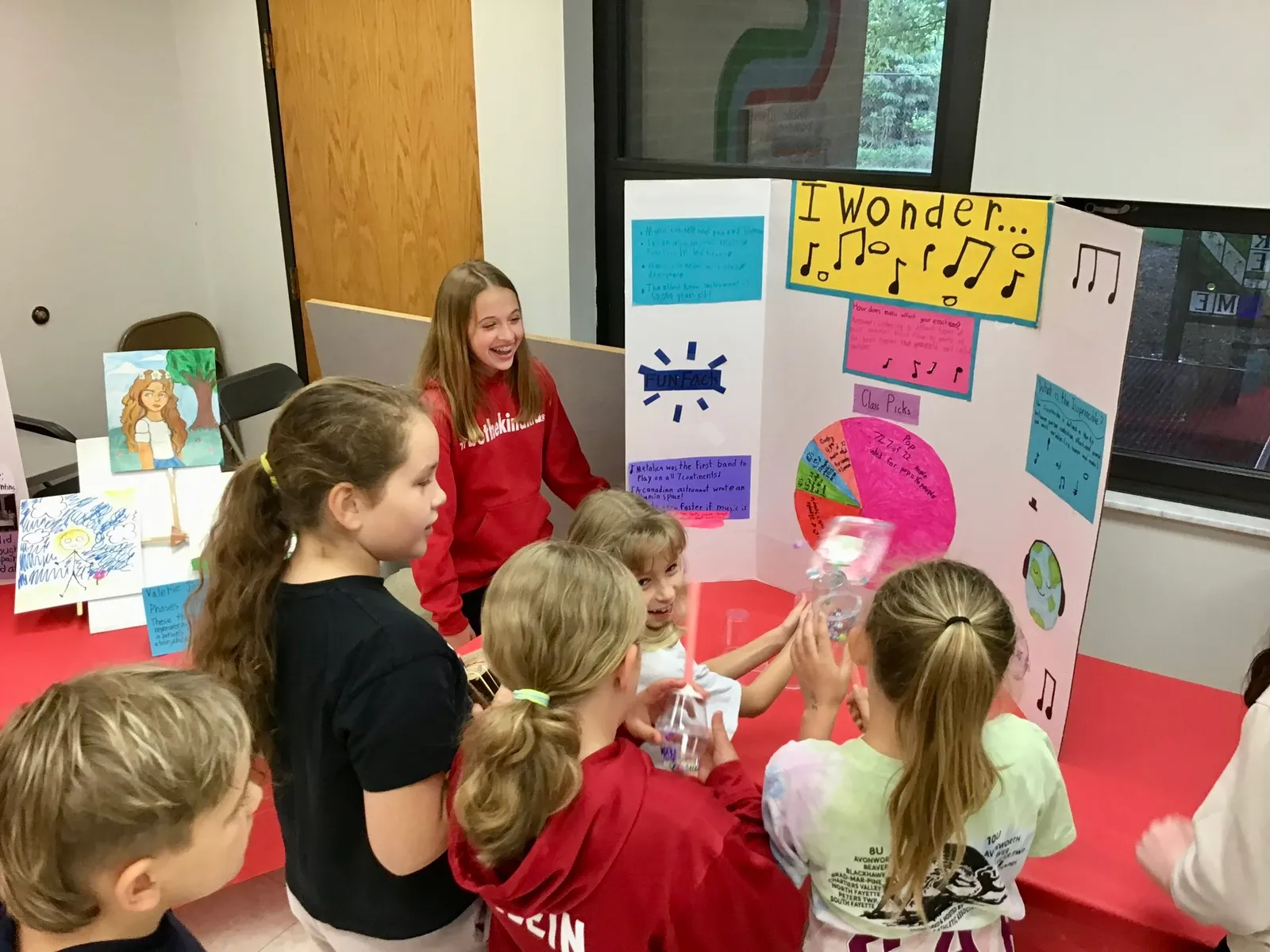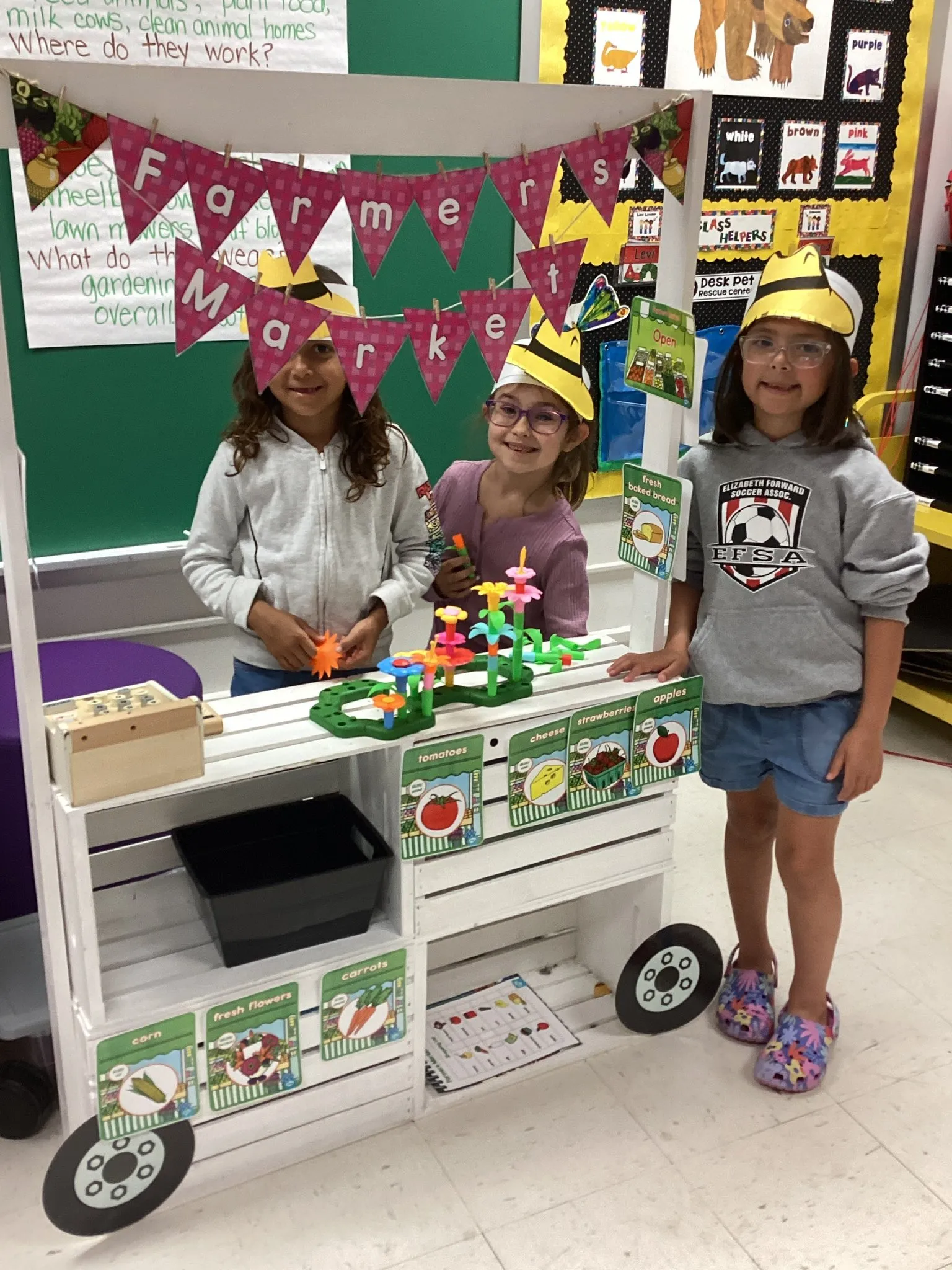When administrators from four Pittsburgh-area school systems learned about a California school district's career-focused curriculum that was exposing students as young as 5 years old to a variety of professions and skill sets, they knew they wanted to bring that model to the East Coast.
And although the student populations and demographics of the four school districts vary, the district leaders made a unique pact to collaborate in uniformly developing and implementing the K-8 curriculum.
Starting last school year, the school districts of South Fayette Township, Duquesne City, Avonworth and Elizabeth Forward started phasing in the World of Work academic framework in their elementary and middle schools. Modeled on a career-focused curriculum from Cajon Valley Union School District in El Cajon, California, the four Pennsylvania districts co-created grade-specific lessons that could be integrated into core-subject areas.
The lessons use inquiry and play-based learning to expose students to professions in the western Pennsylvania region. The lessons also help students better understand their own personal characteristics and interests and how those attributes can be a launching point to explore professions.
"It builds a positive culture of belonging and self awareness for our learners. I think that is probably the foundation for so many other things to grow and be nurtured."

Michelle Miller
Superintendent of South Fayette Township School District
Michelle Miller, superintendent of South Fayette Township School District, said it was a "mammoth" task for the four school districts to jointly adapt the Cajon Valley curriculum for all K-8 students in the region.
"We asked the question, how do we divide this work in meaningful ways so that there's consistency in all of our buildings, there's consistency with design, there's consistency with expectations?" Miller said.
Miller and the other district leaders said the answer to that question was collaboration and coordination between all levels of educators, including superintendents, principals and classroom teachers.
There were "people working together, because it's just so important," Miller said.
Another priority for the districts was to allow teachers flexibility to create experiences for students at different grade levels not just in the four school districts, but in the greater western Pennsylvania region and beyond, Miller said.
Exploring careers
To help students better understand their individual skills, strengths and interests, the World of Work framework is built around a survey students take called RIASEC, which measures possible career interests across six categories: Realistic, Investigative, Artistic, Social, Enterprising and Conventional.
The exercise helps students match their interests with career learning. For example, a student who enjoys art may want to explore careers as a musician, a comic book writer or architect.
Teachers in all four districts created the 54 units of study. In 4th grade, for instance, lessons about enterprising careers would include exploring the job of a real estate agent. In kindergarten, a study about realistic careers would highlight the roles of police officers. In 8th grade, investigative career lessons would hone in on the work of forensic scientists.
The districts were intentional in including a wide spectrum of careers, some of which require postsecondary education and others that do not, Miller said.

To help students roleplay and have hands-on experiences in these careers, the school districts have created spaces in classrooms and other areas to model forensic labs and farmers markets and construction workbenches.
"First and foremost, it builds a positive culture of belonging and self awareness for our learners," Miller said. "I think that is probably the foundation for so many other things to grow and be nurtured."
Working across districts
Training teachers in this model is also a collaborative effort and is being led by Ashli Detweiler, who previously was a teacher and is a current Duquesne City School District employee. Her temporary role of regional coordinator for World of Work in the Pittsburgh area is supported through a grant from The Grable Foundation, a Pittsburgh-area nonprofit that supports children and youth.
Although Detweiler reported to four different superintendents who oversaw 15 principals, hundreds of teachers and thousands of students. The level of commitment from each really helped support the work of teacher training and collaboration and the roll-out of the framework, she said.
"When you give teachers the space and the opportunity to connect and share experiences, best practices, reflection time — it moves mountains, and I don't feel that we do that enough," Detweiler said.
She also said the program has made a positive impact on students. For instance, one chronically absent student would come to school on days where lessons focused on career exploration. The student told their teacher that if school was like that every day, they would attend more often, Detweiler said.
Each district is phasing in the curriculum as it works best for their communities.

Sue Mariani, superintendent of Duquesne City School District, said that while implementing the framework may be "free to little cost" for districts, there would be expenses if schools want to create career centers in classrooms.
Duquesne City School District used grant money to create spaces in a Carnegie Library branch attached to a school for students to explore professions of veterinarians, bankers, fitness studio employees and more, Mariani said.
"We really have an opportunity to show our kids that, you know, living in Duquesne is great, but there's a whole world out there that you don't know, and if you want to come back and give back someday, that's perfect. But let me show you what else is out there," Mariani said.
Students see value in themselves
In Avonworth School District, Superintendent Jeff Hadley said one of the aspects of the program that excites him is the career curriculum's connections to what students are already learning in classrooms.
"It helps students, even at a young age, start to realize they're actually learning this stuff for a reason," Hadley said.
That understanding and knowledge will build, so when students reach the high school level, they'll be more informed about what courses they might want to take, what careers they might be interested in, and what path they might want to pursue beyond high school, he said.
"I see the huge value in how it's helping kids see the value in each other and the value in themselves, and that has transformed, I think, culture in classrooms and culture in the buildings."

Jeff Hadley
Superintendent of Avonworth School District
The superintendents said the framework is not pressuring young students to pick a career at an early age and only stick to that path. Rather, it helps students better understand their own strengths and the strengths of their classmates.
"I see the huge value in how it's helping kids see the value in each other and the value in themselves, and that has transformed, I think, culture in classrooms and culture in the buildings," Hadley said.



















